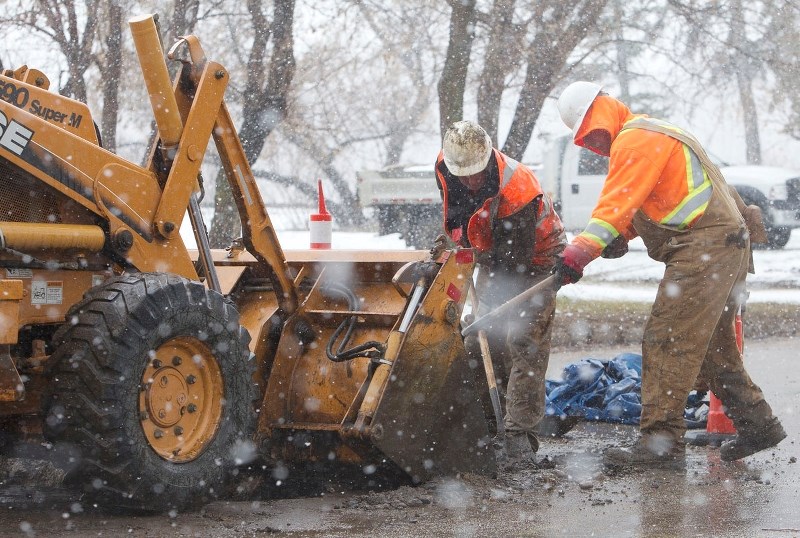Albertans need to develop yoghurt for pipes and drinkable toilet water if they want a sustainable water system, says an Edmonton water policy expert.
Nicholas Ashbolt, an environmental microbiologist and the Alberta Innovates translational health chairman in disease prevention at the University of Alberta, is giving a free talk next Wednesday on reimagining our water systems as part of Canada Water Week.
Canada Water Week is a national celebration of water that coincides with World Water Day on March 22.
Ashbolt’s job is to translate health research into public policy. He’s studied water issues for about 30 years and has helped develop water policies for Alberta, Australia and the World Health Organization.
Modern water systems are fiscally and physically unsustainable, Ashbolt said.
“We have not been maintaining infrastructure,” he explained, and most of the pipes we put in 50 years ago are now crumbling.
While our treatment systems are great at stopping diseases like cholera, they actually encourage Legionnaires’ disease, which is caused by bacteria in water pipes. They also dump tonnes of valuable nutrients such as phosphorous into waterways, encouraging eutrophication (infilling) in lakes and rivers.
We could solve these problems by paying more for water treatment, but that means sticking with an old dinosaur of a water system, Ashbolt said.
“The amount of energy in the food and feces we flush down the toilet into the sewer is actually more than the amount of energy we currently use to treat and pump the water around the city.”
That means we could actually make money on water treatment if we treated our sewage as a resource and not waste, Ashbolt explained.
Germany has started running its sewage through anaerobic digesters to convert it into methane, heat and electricity, for example. California and Arizona are testing new ways to super-treat their sewage to make it drinkable.
“If you go back 100 or so years, sewage farms were actually fairly common,” Ashbolt said, but it’s only now that nations are getting comfortable with using treated sewage to fertilize fields.
As for Legionnaires’ disease, water filters already tend to house the bacteria that can outcompete legionella (the cause of that disease). Add these filters to domestic water pipes, and we can colonize them with good bacteria, much like how we can colonize our guts with beneficial bugs by eating yoghurt.
“Let’s call it a probiotic approach for plumbing,” Ashbolt said.
St. Albert doesn’t have anything special planned for Canada Water Week but will be tabling its new water conservation bylaw the day after World Water Day, said city environmental co-ordinator Meghan Myers. That law will include new rules regarding water-saving fixtures and restrictions on outdoor sprinkler use.
Ashbolt’s talk runs from 5 to 6 p.m. March 18 in Room 2-190 of the Edmonton Clinic Health Academy (the place with all the coloured stripes on it across from the Butterdome). Call Katie Willis at 780-492-1982 for details.
St. Albert could get free home energy audit kits if it wins an energy-saving challenge this Earth Hour.
St. Albert is once again in the running for a grant from FortisAlberta this month as it joins 25 other cities in the company’s Earth Hour Challenge.
Earth Hour is an international event where cities turn off all non-essential lights from 8:30 p.m. to 9:30 p.m. on March 28 to show support for action on climate change.
FortisAlberta runs a contest where it has communities in its service area compete to see which can save the most power per resident during Earth Hour.
The 11 communities, which included St. Albert, in last year’s challenge saved enough energy to run 10,851 homes for an hour, said FortisAlberta spokesperson Debbie Bowering.
The top three savers this year will get grants of $2,500, $1,500, and $1,000, respectively, for use in energy efficiency projects in their communities, Bowering said.
St. Albert will once again be turning off all the lights it can at city buildings during Earth Hour, Myers said. The city will also use social media to encourage city residents to take part as well.
The city plans to use its grant if it wins to buy home energy audit kits for rental at the library, Myers said.
Contest winners will be announced around April 10, Bowering said.



